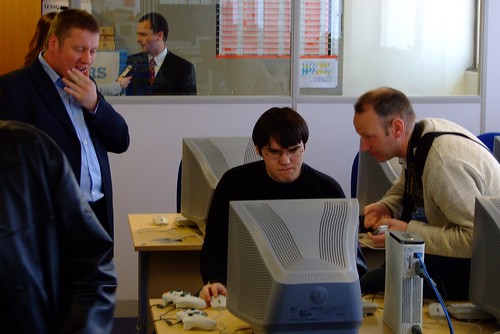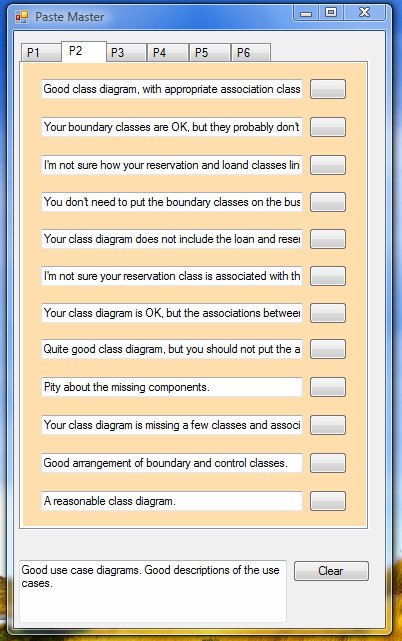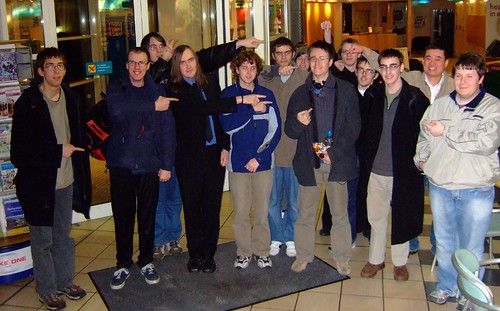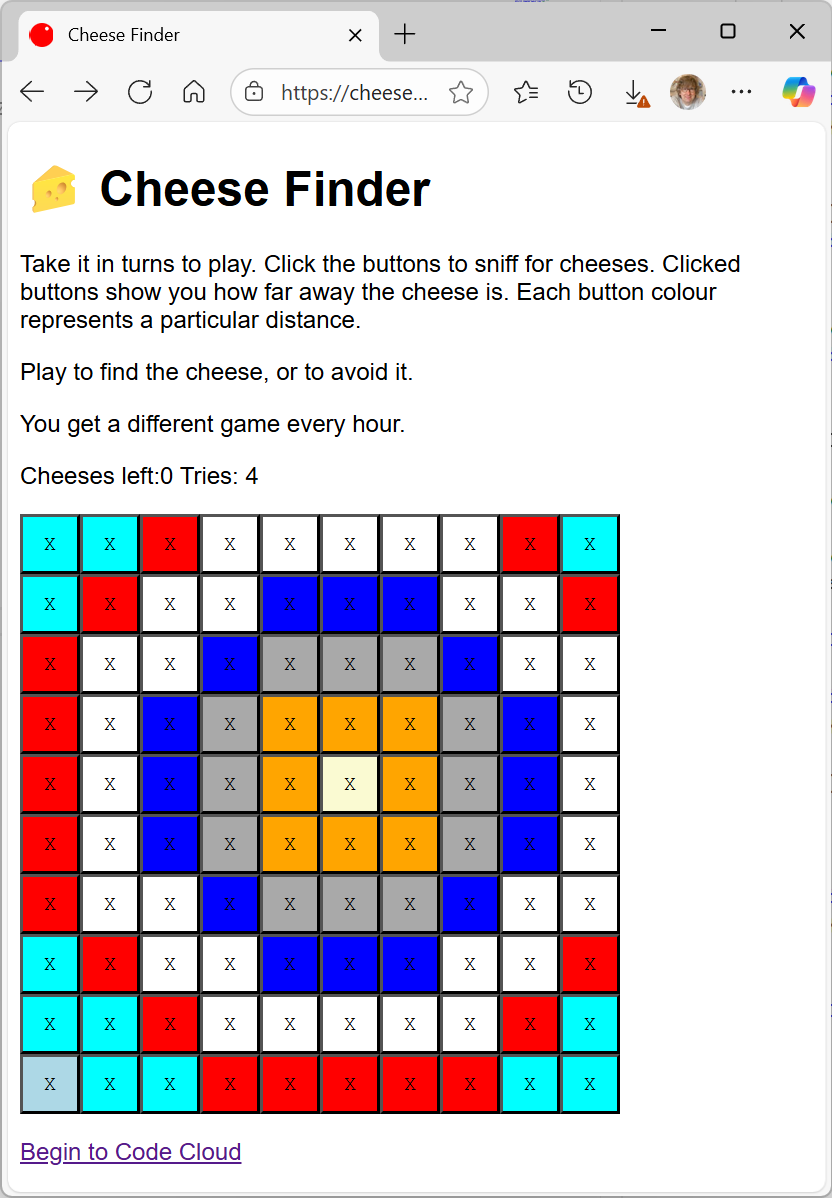This is a text heavy post. Sorry about that, but I figured I'd better write some proper stuff so that the boss doesn't think I've spent all my time in SF (you are allowed to call it that once you've been here three days) wandering round taking photographs...
Today we discussed computer games in the context of education. Which has been very interesting. Quite a bit of the discussion has been outside the scope of what we presently do at Hull, but it is fascinating in itself. At Hull we teach Computer Science with Games Programming.
The word with in our course title is very important. It means that we are going to make you into a Computer Scientist, but one who can work with the particular needs of the computer games industry. This means that you'll be grappling with performance issues, 3D graphics, physics and artificial intelligence, because that is what sits underneath games and makes then tick. You will also be dealing with things like project management, software engineering and working in a team, because this is how games are actually got out of the door and into the shops.
We do not teach game design, story telling, character construction or fine art. These are totally separate fields and dealt with by specialist team members. However, a lot of folks at the conference do teach this material. And it is fascinating. We had some game industry gurus along to give us their take on education and research and the results are thought provoking stuff.
The first thing that came up was how little we really know about computer games and education. We are only just starting to figure out what categories of material there are in the field, and how they relate to each other, and what we can teach about them. There is quite a bit of resistance to teaching about games in academic circles, which I think is a shame. Media is a well established area of study, and I think that compared to computer games it is somewhat shallow.
After all, we don't find completely new forms of TV receiver, with new and interesting abilities, appearing every five years. And the narrative and structure of content delivered with just a picture and some sound that you sit in front of is much more restrictive than something that you can interact with directly. Perhaps things will change, perhaps we'll get the word game out of computer gaming, align it with the entertainment field, and then it will become more respected as an area for study. Perhaps.
Doug Church from Electronics Arts delivered the keynote, talking about research in computer games. The news was not good. Points that he made included (apologies for any mis-quotes):
- From a research point of view the games writers don't know what they want, over and above the immediate problems that they have to solve in the present release. Blue sky research would be nice, but who has time for blue sky?
- There is no grammar for describing content. Games are described in terms like "a bit of Grand Theft Auto with a Tekken twist" because there is simply no other way of expressing what they are.
- There is no publishing culture in the games business. After all, why would you give away your hard earned knowledge in a paper for others to read? The way that ideas and techniques move around is when people move with them.
- There are no shared tools between academia and industry. Industry builds up and tears down tools so rapidly that these are usually unstable, transient and poorly documented, and so of limited use anyway.
- Games writers hardly ever use books about game design, or techniques which are taught for this purpose. They go with experience and track record when deciding what to do and who to hire. They also play lots (and lots) of games - which academics may not.
- Not all game writers read published research, although they can be enticed into it by a good looking demo.
So, with all that said, what do we do? Well, there was an acknowledgement that students are where the future is at, and they must be connected to the profession, preferably on a one to one basis. Computer game education should be seen as "an invitation into a community and a chance to choose a future". In other words, a game you might like to play I suppose.
The way forward is through frequent, immersive, collaboration between student, teacher and professional. The way I see it, this could just about work. As long as students understand that the business is a profession, and not just a way to live out your fantasies, the industry starts to take a longer term view of research and academics start to play more games and take them more seriously.
Then Doug said something which really cheered me up He emphasized how important it is for the game creators to function as a team, communicate ideas to each other and plain just work together. "Human interaction is the hardest part of the job".We've been hammering this at Hull for years, and it is nice to see it brought out again as a priority by the game makers. He also mentioned that estimation is important. Whenever you do something you should try and work out how long you think it will take. Apparently he process of making a wrong guess is very useful educationally...
Then after lunch we did some work on creating gameplay that was intriguing. We played a game involving bits of paper and paperclips, and then fiddled with the rules and changed the scenario. This was great fun. At the end we had something that we might want to take somewhere into a computer program. Things that came out:
- If you want to teach with games, you are going to teach procedures, not facts.
- The items in the game end up being incidental, whether they are monsters, buildings, cars, people or whatever. Players figure out what they represent in terms of the game and then work with that.
- You can completely change the character of a game by making very simple, subtle changes to the rules of play.
- You can design really interesting gameplay just with paper and paperclips.
I'd love to take these ideas and get students to brainstorm some gameplay and then build it. I'm not sure if this would be part of our taught provision at Hull, but it would be good fun for our fledgling game creators club to have a go it. Inspiring stuff.




























































